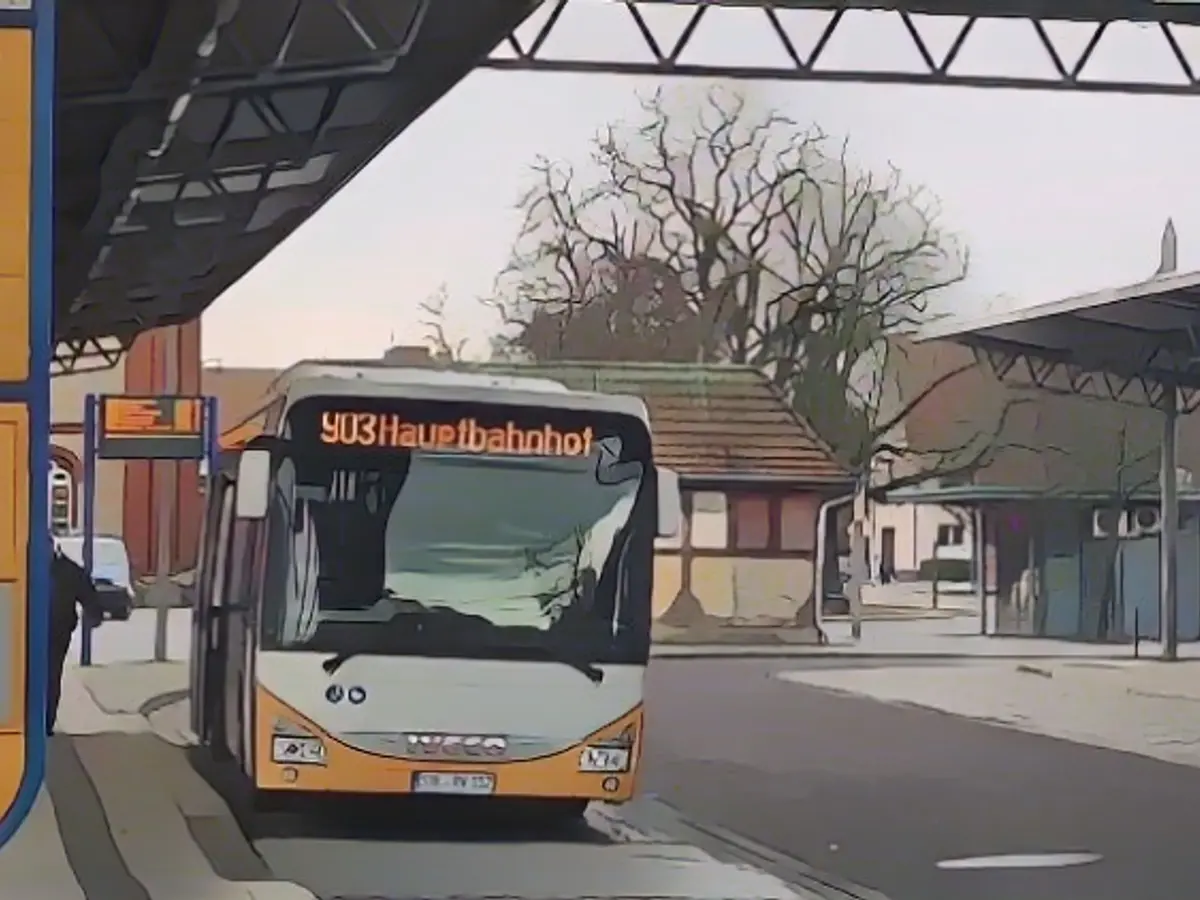Stendal district causes Germany ticket to falter
Many commuters really appreciate the Deutschlandticket. However, politicians have been bickering about its financing since its introduction, with the federal states and local authorities in particular fearing that they are being overcharged. The district of Stendal is already pulling the emergency brake and is withdrawing from the flat-rate ticket as of the new year - at least partially.
Just a few months after its celebrated launch, the Deutschlandticket for local and regional transport is facing several major stress tests. The details of its financing have not been clarified in the long term, passengers could face a price increase as early as May - and now its nationwide validity is also in doubt.
"If several local authorities react like the district of Stendal, then that would definitely be the death of the Deutschlandticket," warned Detlef Neuß, Federal Chairman of the passenger association Pro Bahn, on MDR television. Last week, the Stendal district council did not approve a resolution to recognize the Deutschlandticket in the district. This means that the ticket will no longer be valid on buses there from January 1. The district had expected additional costs of 40,000 euros for the first four months of the year. Trains are not affected by the decision. The Ministry of Infrastructure in Magdeburg spoke of an isolated case.
Concerns about additional costs at federal, state and local level
"We absolutely must prevent a domino effect," said Dirk Flege, Managing Director of the Pro-Rail Alliance. "We must not wait for county after county to have this debate and, in the worst case, pull out of the Deutschlandticket." The federal and state governments must also create funding security for the additional costs beyond the summer of 2024.
Although the federal and state governments agree that the Deutschlandticket should also be available next year, they do not agree on how any additional costs will be borne. According to a forecast by the Association of German Transport Companies (VDV), the losses incurred by the industry due to the introduction of the Deutschlandticket are likely to amount to 2.3 billion euros this year, after the ticket was only introduced at the beginning of May. In the full year 2024, the figure is likely to be 4.1 billion euros.
The federal and state governments have so far pledged to provide six billion euros for 2023 and 2024 - so there could be a gap of 400 million euros. At the beginning of November, the transport ministers of the federal states were tasked with presenting a concept for the further financing of the ticket in good time before May 1, 2024. The mandate includes a mechanism for updating the ticket price, "which may also include an increase".
Higher price from May?
It was always clear in principle that the price could rise above 49 euros at some point; the value was treated as an entry-level price. However, many experts assume that consumers would react very sensitively to such an adjustment and that even a slight increase could lead to many subscription cancellations. In many cases, the current price is already considered too high.
The Federation of German Consumer Organizations (vzbv) also assumes that a more expensive Deutschlandticket would jeopardize consumer acceptance and weaken local transport as a whole. Instead of placing a greater burden on users, the federal and state governments should live up to their responsibility for the Deutschlandticket and increase their funding, demanded Marion Jungbluth, mobility expert at vzbv. Around ten million people in Germany currently use the ticket.
The extent to which the example from Stendal will find imitators remains to be seen. Many local authorities and transport companies are probably already bound to the Deutschlandticket by order of the respective federal state or membership of a transport association. However, this is apparently not valid in all regions. "The federal states must oblige the districts and cities to use the Deutschlandticket and thus also assume responsibility for financing," demanded the German Association of Districts on Tuesday. The VDV expressed a similar view: in order to make the ticket a lasting success, "the ticket also needs to be legally secured", said Alexander Möller, Managing Director of the association. This is a "joint task for the federal government, the federal states and local authorities".
Read also:
- Year of climate records: extreme is the new normal
- Precautionary arrests show Islamist terror threat
- SPD rules out budget resolution before the end of the year
- Numerous oil, gas and coal lobbyists at climate conference
- The federal ministry of transportation is currently engaged in discussions with the Federal states and local authorities, including Municipalities like Saxony-Anhalt, about the financing of the Deutschlandticket, as various entities fear being overcharged.
- The Verbraucherzentrale bundesverband, a German consumer organization, has expressed concern regarding potential price increases for the Deutschlandticket, stating that even a slight increase could lead to many subscriptions being cancelled.
- The Saxony-Anhalt district council's decision not to recognize the Deutschlandticket in the district has sent ripples through the transportation policy, raising questions about the viability of the ticket's nationwide validity and the roles and responsibilities of different entities, such as the federal ministry of transportation and the Federal states.
Source: www.ntv.de








